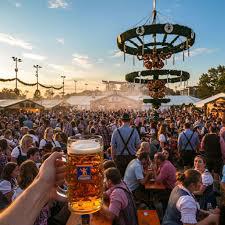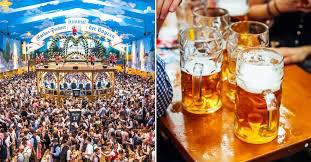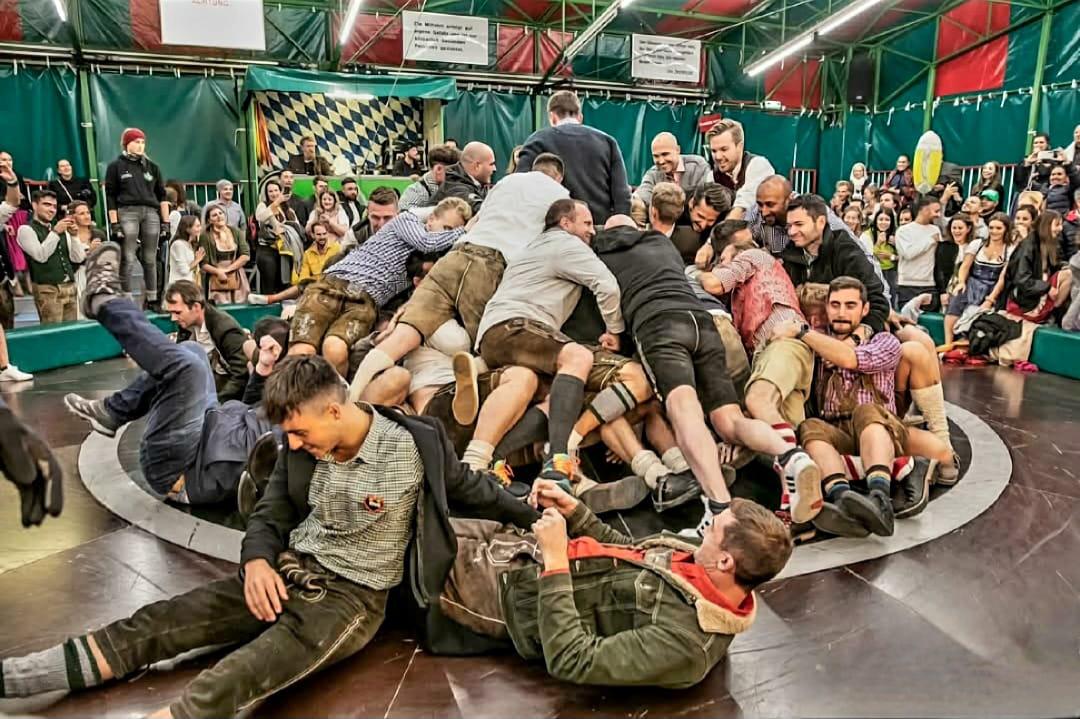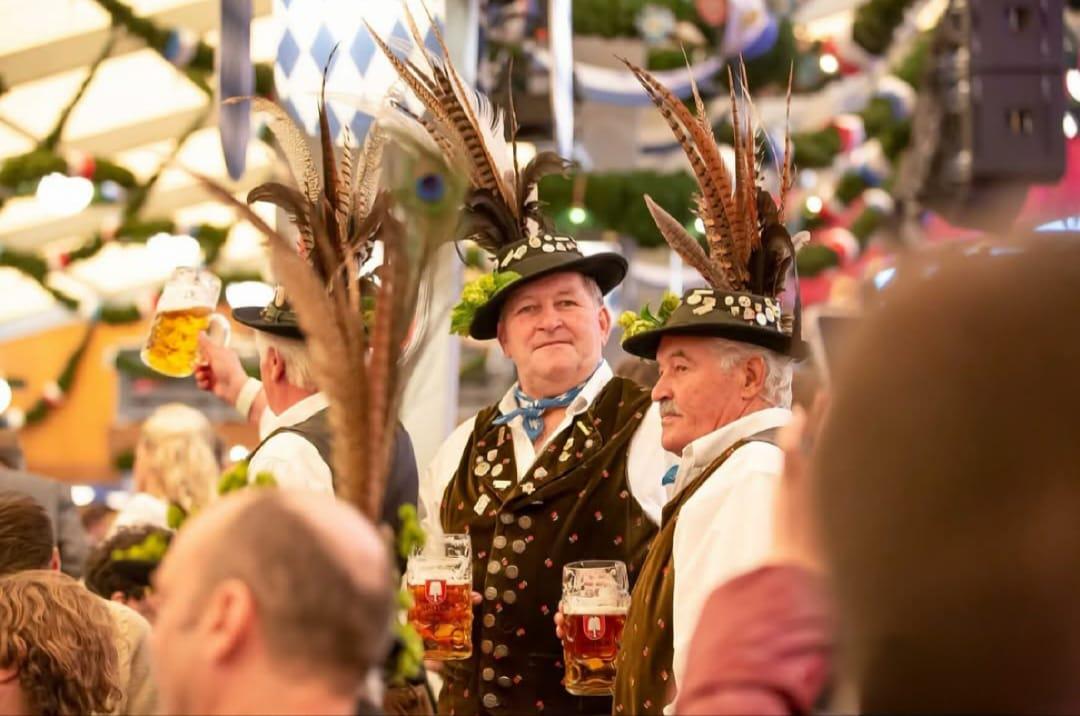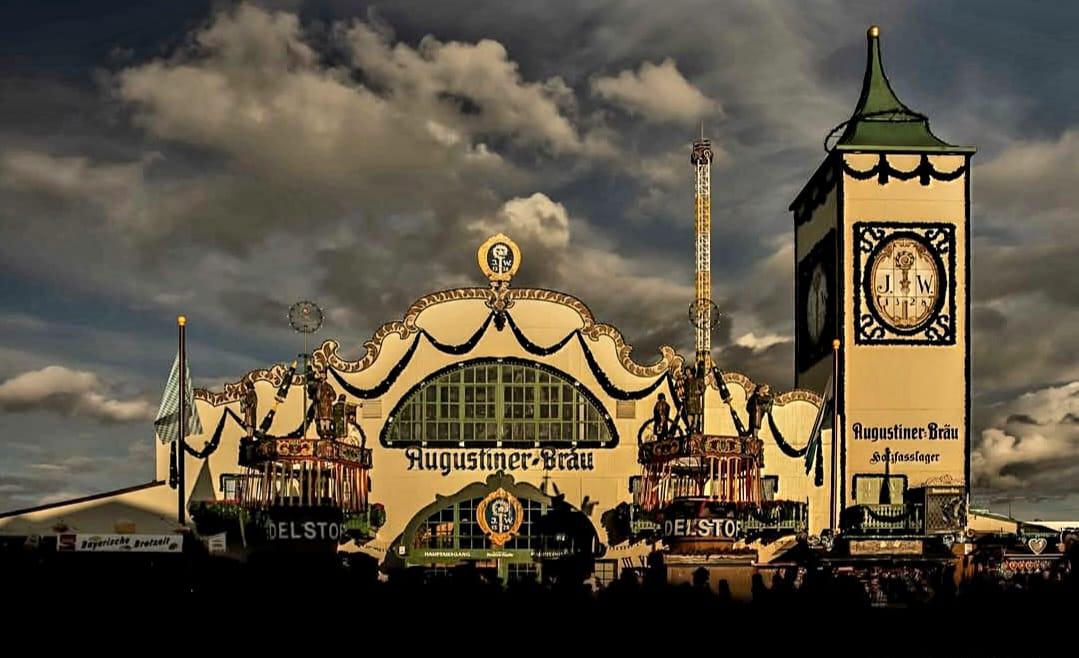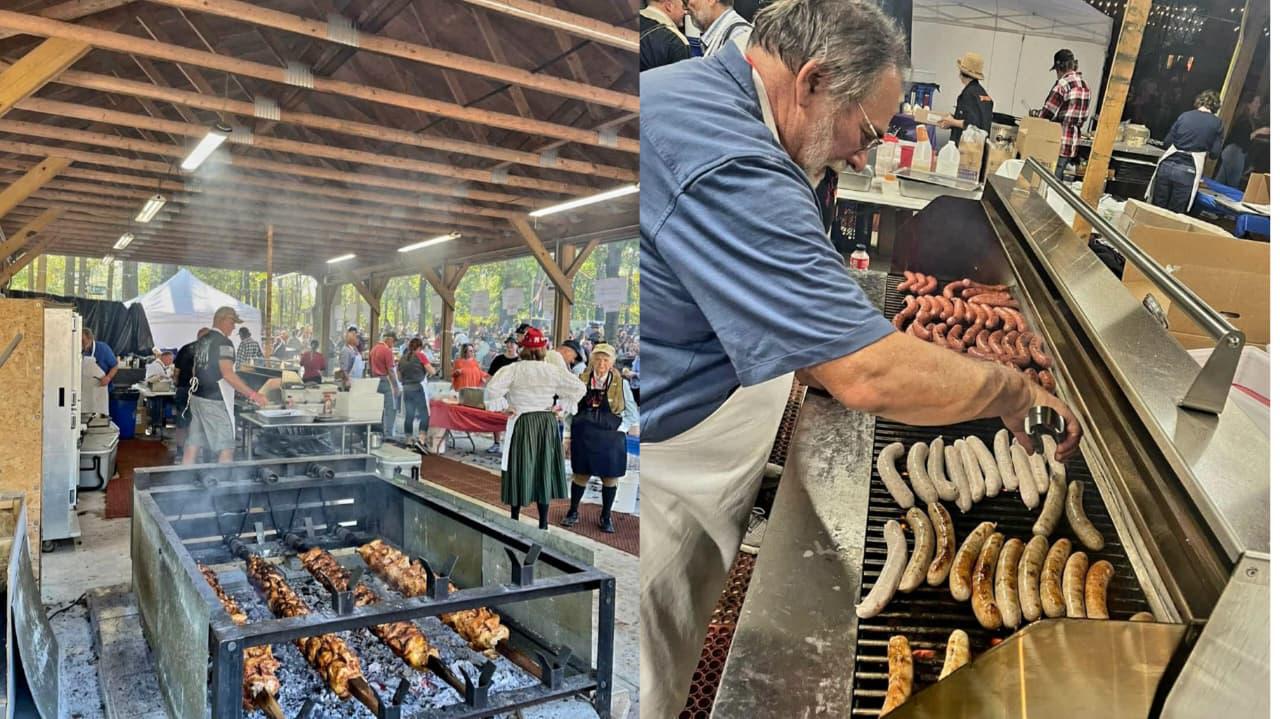Oktoberfest celebrations !
In the hills of Bavaria, something exciting has been brewing: Oktoberfest! Germany’s largest ‘volksfest’ is celebrating its 190th year, so just grab your pretzel and put on your dirndl – we’re about to embark on a thrilling journey of discovery! Oktoberfest in Munich has evolved into the world's largest folk festival and beer celebration— and the most popular. Every year, Oktoberfest attracts millions of visitors and once an Oktoberfest goer, always an Oktoberfest goer.
Over two centuries, it transformed from a local Bavarian event into a global phenomenon, with its dates, attractions, and signature beer styles changing dramatically. The first Oktoberfest was held on October 12, 1810, to celebrate the marriage of Bavarian Crown Prince Ludwig to Princess Therese.
When Crown Prince Ludwig I of Bavaria was about to celebrate his wedding in Munich in 1810, he decided it was an occasion for all of Bavaria to celebrate. He commissioned Josef Pschorr, then the brewmaster of the Hacker-Pschorr brewery, among other Munich brewers, to develop special brews to commemorate the occasion.All the citizens of Munich were invited to a large feast and horse races held on a field just outside the city gates, which was named "Theresienwiese" ("Therese's Meadow") in honor of the bride.
In 1810, a year after the wedding celebrations, everyone was in agreement: They wanted more fun, so the festival was held annually and in 1850,the statue of Bavaria, guardian of Oktoberfest and symbolic figure of Bavaria state, was unveiled and dedicated a place in the hall of fame which led to renewed festivities.
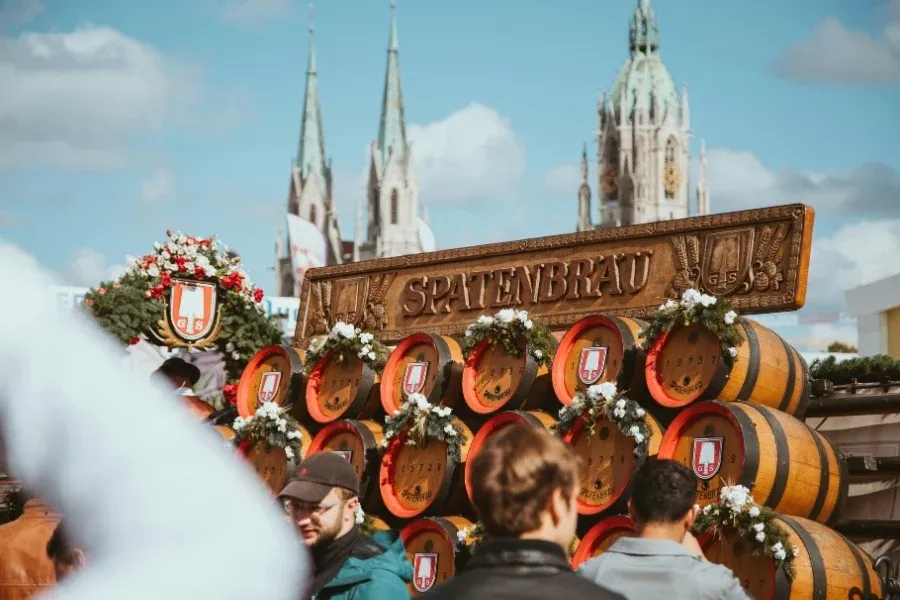
The city of Munich took over management in 1819, making Oktoberfest an annual event and the organizers moved the start date earlier into September to take advantage of warmer weather and longer evenings. So Oktoberfest is held annually from the Saturday after September 15 to the first Sunday in October. The mayor of Munich taps the first keg to open the festival,with a 12-gun salute and the cry “O'zapft is!” (“It’s tapped!”)Every year, visitors eagerly await to see how many strokes the mayor needs to use before the first beer flows with bets being made in fun.
However,the original horse races, which sparked the festival, were discontinued in 1960. For much of the 19th century, the official festival beer was a darker, amber-colored lager known as Märzen. In the 1970s, breweries began offering a lighter, golden lager called Festbier to cater to changing tastes. Today, Festbier is the official beer served at the Munich event.
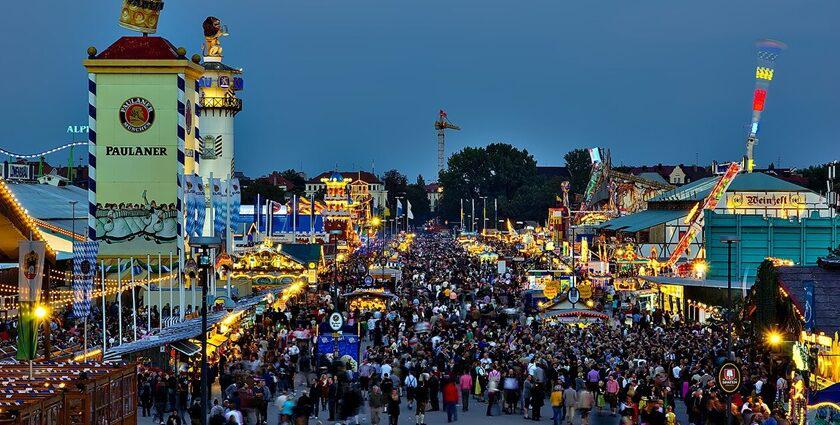
Since 1950, the entry parade procession has been led by the Münchner Kindl, followed by the incumbent Mayor of Munich riding in the Schottenhammel family carriage. The parade also features decorated horse-drawn wagons and floats from the breweries, as well as carriages representing other restaurateurs and showpeople. Throughout the city, pomp and pageantry combined with oom-pah-pah music blasting from tubas and accordions as ponies wearing colorful fruit wreaths around their necks pulled carts adorned with flowers and vegetables, all as fresh and beautiful as a painting.
Women danced the polka around the parade route twirling in calico gowns, checkered aprons, and long braids beneath lace caps while their mustached male partners looked spiffy in forest green suits. Children bent over the geranium plant window boxes, waving to revelers below added to the festive cheer. Music bands from the beer tents accompany the procession and while most groups are from Bavaria,delegations also arrive from other European regions, creating a vibrant, festive experience that celebrates German culture and community.
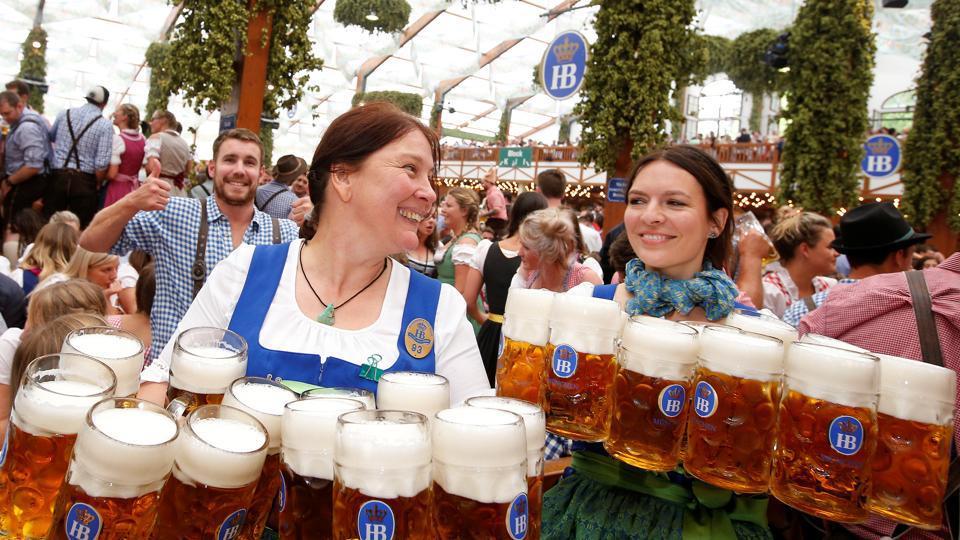
Meeting strangers at a shared table, toasting new friendships and swapping stories with Beer tents overflowing with the sounds of traditional "oompah" bands playing German folk music and sing-alongs makes it so enjoyable.Even if one dosen't know the German words, popular tunes like "Sweet Caroline",YMCA, "Angels" get the entire crowd singing and dancing on the benches.
For 2 weeks, people party, drink, and eat schunkel on the Theresienwiese in the Bavarian capital.German beer girls, known as “Bierkeller-Madl” or “Biermadel,” are not just servers; they are custodians of a long-standing tradition and as they walk back and forth along the long aisles between the beer benches to serve food and drinks they carry upto 18 beer mugs all at once; that’s 41.4 kg! Each year around 7.5 million liters of strong beer are drunk. The beer you’ll find during the festival is brewed within the city limits of Munich, and is always sold in 1-liter beer mugs. Prost!Well with so much beer consumed, some attendees joke about needing vomit-proof sneakers to handle the event.
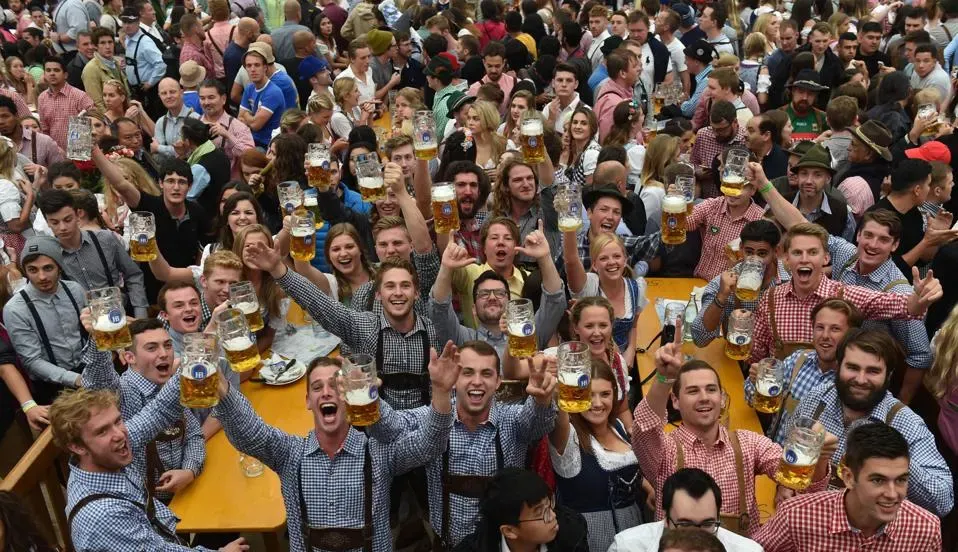
The most popular things to eat at Oktoberfest are grilled chicken (“Hendl”), pork knuckles (“Schweinshaxe”), and oxen (“Osche”).
Surprisingly the amount of chicken eaten FAR outweighs the amount of sausages!Oktoberfest draws more than six million people each year, many of them tourists who love dressing up in traditional bavarian costumes,with women wearing the 'drindl' and ' lederhosen' for men.
But out of the millions of people attending the festival, there's one person you won't find at Oktoberfest: Paris Hilton. She has been permanently banned since 2006, after she promoted a canned wine brand while wearing a particularly non-traditional dirndl.
Oktoberfest has transcended its local Bavarian roots to become a widely recognized cultural event celebrated all over the world, with many cities hosting their own versions modeled on the Munich original. The Indo german cultural society has been organising the Oktoberfest in Bangalore for 21 years now and this year will be the 22nd edition.
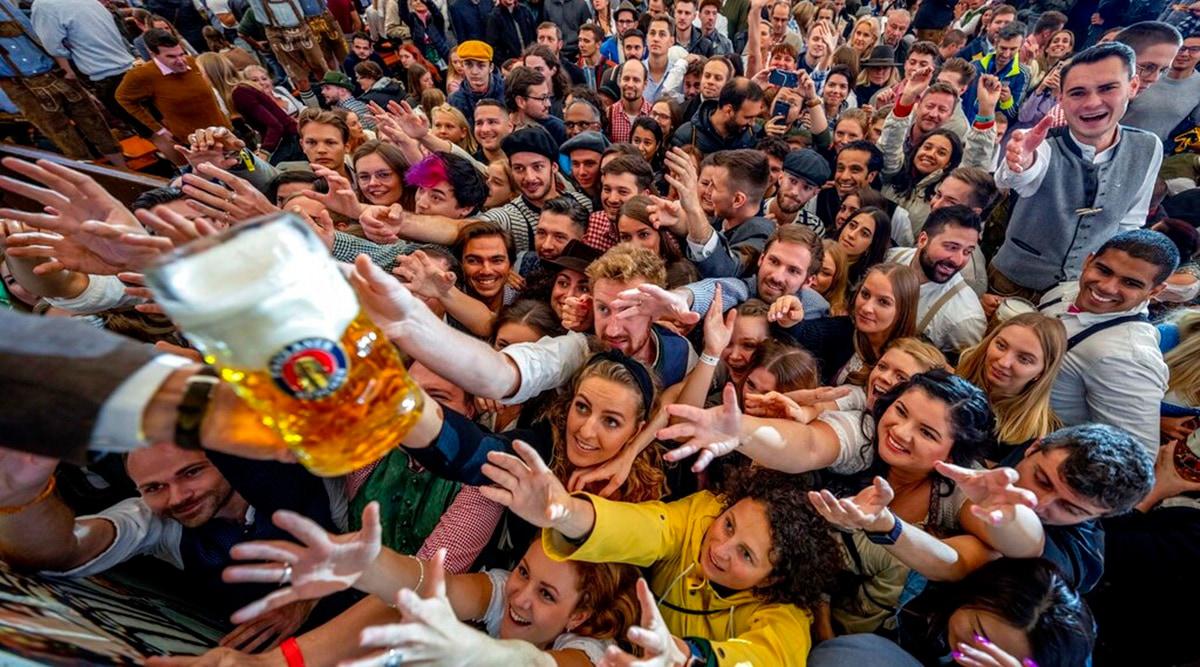
The event has been generously supported by several German subsidiaries in Bangalore and the German Consulate here, not to mention several Bangaloreans who have been over the years regular to revel in the MUSIC, DANCE, COLOURS dressed in DIRNDL & LEDERHOSE. The IGCS creates a near perfect OKTOBERFEST ambience with traditional Bavarian Benches and serves shades of Munich Beer brewed specially by United Breweries, Bangalore.
Comments (6)






